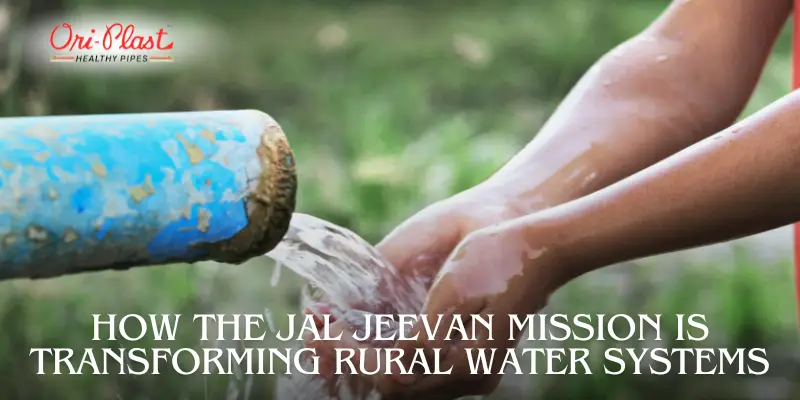Access to clean and safe drinking water is a fundamental human right that plays a pivotal role in maintaining public health and well-being.
In a diverse country like India, where water quality can vary significantly across regions, selecting the appropriate materials for conveying drinking water is of paramount importance.
PVC pipes have emerged as a popular choice due to their affordability, durability, and ease of installation.
However, it's crucial to note that not all PVC pipes are suitable for carrying potable water. In this comprehensive guide, we will delve into the key considerations for selecting safe PVC pipes for drinking water in India.
Understanding PVC Pipes
Polyvinyl chloride, commonly known as PVC, is a synthetic plastic polymer that finds extensive use in various applications, including water distribution systems.
Among the different types of PVC pipes available, not all are safe for transporting drinking water.
Therefore, it's essential to distinguish between these types to ensure that the chosen material aligns with health and safety regulations.
Types of PVC Pipes
- uPVC (Unplasticized PVC): uPVC pipes are widely acknowledged as a safe option for conveying drinking water. They are crafted from rigid PVC material devoid of plasticizers, making them non-toxic and resistant to chemical degradation. uPVC pipes exhibit impressive strength to withstand high pressure, and they do not corrode or scale over time.
- CPVC (Chlorinated PVC): CPVC pipes are another commonly used alternative. These pipes are suitable for both hot and cold water distribution and boast higher temperature resistance compared to uPVC pipes. However, concerns have arisen about the potential release of harmful chemicals from CPVC pipes after prolonged exposure to high temperatures.
Selecting Safe PVC Pipes for Drinking Water
- Certifications and Standards: A critical aspect of choosing PVC pipes for drinking water is ensuring their compliance with relevant national and international standards. In India, it's imperative that pipes intended for potable water use adhere to the specifications outlined by the Bureau of Indian Standards (BIS), particularly IS 4985 for uPVC pipes and IS 15778 for CPVC pipes.
- Material Composition: Prioritize pipes labeled as "safe for potable water" or "drinking water grade." These pipes are meticulously formulated with materials that have undergone rigorous testing and approval for contact with drinking water. In this regard, uPVC pipes stand out for their non-toxic composition.
- Manufacturer Reputation: When making your PVC pipe selection, opt for established manufacturers known for producing quality products. Reputable manufacturers are more likely to uphold stringent quality control measures and comply with safety standards.
- Color Coding: In the Indian context, uPVC pipes designed for drinking water are commonly identified by their blue color, while CPVC pipes are often denoted by shades of beige or yellow. Familiarizing yourself with this color coding system ensures the correct choice of pipes for drinking water applications.
- Professional Installation: Proper installation by trained professionals is pivotal in maintaining water quality. Entrust the installation of PVC pipes to experts who possess a thorough understanding of correct techniques and necessary precautions to avert contamination.
Conclusion
Access to safe drinking water is not only a basic right but also a crucial component of a healthy society.
When it comes to selecting PVC pipes for drinking water distribution in India, opting for uPVC pipes that align with the relevant standards and certifications is a prudent decision.
These pipes offer a reliable and enduring solution for delivering clean and potable water to homes and communities across the nation.
Always prioritize safety, quality, and adherence to regulations when making your choice of PVC pipes for drinkable water applications.
By doing so, you contribute to the well-being and health of individuals and communities alike.




